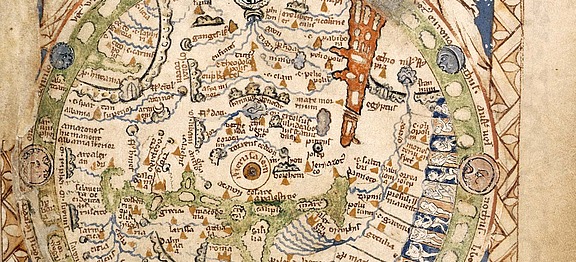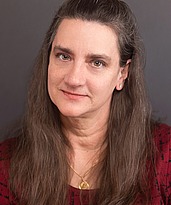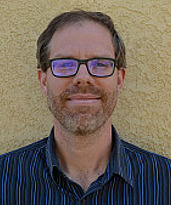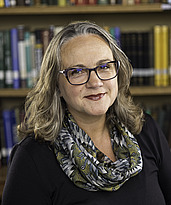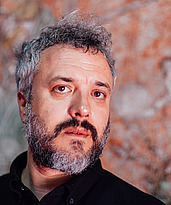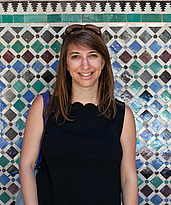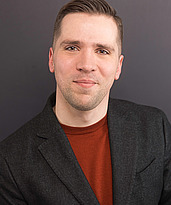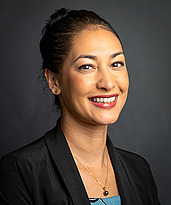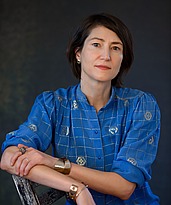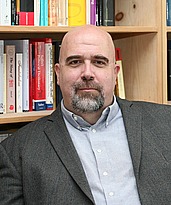Medieval Studies
Scholars
Professors Emeriti
Patrick J. Geary Medieval History
Caroline Walker Bynum Medieval European History
Medieval history in the School of Historical Studies has a distinguished record, which began with the appointment of Ernst Kantorowicz in 1951 on the basis of his studies on Frederick II. While at the Institute, he wrote his most important book, The King's Two Bodies: A Study in Medieval Political Theology (1957), whose influence reached far beyond the field of medieval studies and is still regarded as a classic of historical scholarship. A few years after Kantorowicz's retirement, the School appointed Kenneth Setton (Professor 1968-84), who specialized in the history of the Crusades, followed by Giles Constable (Professor 1985-2003), whose work reshaped the field of intellectual and religious history, concentrating especially in the central and late Middle Ages. The high standards and international reputation of medieval studies at the Institute was further enhanced with the appointment of Caroline Walker Bynum (Professor 2003-2011, Emerita 2011-present).
Bynum has pioneered the study of medieval women, introducing the category of gender in the study of religiosity, intellectual history and spirituality, including in her internationally acclaimed book Holy Feast and Holy Fast: The Religious Significance of Food to Medieval Women (1987). Her successor, Patrick Geary (Professor 2011-2019, Emeritus 2019-present) brought new methodological depth to the post, with research activity in the fields of historical ethnicity, nationalism, genetic history and Carolingian monastic culture. Like Bynum (1997-98), Geary served as President of the Medieval Academy of America (2008-09).
The current professor’s interests include literary history, visual culture, and intellectual history, especially history of science, philosophy, and theology. Akbari has written books on optics and allegory (Seeing Through the Veil) and European views of Islam and the Orient (Idols in the East), and edited collections on travel literature (Marco Polo), Mediterranean Studies (A Sea of Languages), and somatic histories (The Ends of the Body). Akbari has also carried out research on premodern conceptions of nationalism and collective identity, including ethnicity and racialization. She is finishing up a monograph titled Small Change: Metaphor and Metamorphosis in Chaucer and Christine de Pizan, and working on another project on premodern ideas of periodization as seen in universal histories, maps, and diagrams (The Shape of Time).
The School encourages applications from qualified scholars from anywhere in the world: it aspires to both depth and diversity in bringing together every year a group of distinguished scholars in the broad area of medieval historical studies.
2022-23 Events:
October 27-29: Munsee Language & History Symposium
LUNAAPAHKIING, HULUNIIXSUWAAKAN, LUNAAPEEWAK
(Munsee Land, Munsee Language, Munsee People)
This second annual event takes place during the Punihle Waniipakw Niipaahum (Falling Leaf Moon) on Lunaapahkiing, at Princeton University and the Institute for Advanced Study. The gathering puts Princeton and IAS students, staff, members, and faculty in direct dialogue with members of the Munsee-Delaware Nation to learn about Munsee language, history, and culture. Speakers include Munsee language keepers, historians, artists, and community members.
Indigenous language revitalization counteracts the violent history of settler colonial regimes, including boarding schools where Native children were forced to speak English exclusively. This is the second in what we hope will be a series of annual gatherings in support of Lunaape language revitalization efforts.
View the symposium program here. Pre-registration is required for virtual and in-person attendance. Register here.
For questions about the event, please contact Melissa Moreton at: mmoreton [at] ias.edu.
May 10, 4:30-6 pm EST: We Are the Stars: Honoring Our Literary Ancestors, Sarah Hernandez (University of New Mexico). Online lecture followed by a conversation with Diane Wilson, author of The Seed Keeper.
Critically examining the U.S. as a settler colonial nation, this literary analysis re-centers Oceti Sakowin (historically known to some as the Sioux Nation) women as their tribes’ traditional culture keepers and culture bearers, and it offers thoughtful connections between settler colonialism, literature, nationalism, and gender.
Sarah Hernandez (Sicangu Lakota) is an assistant professor of Native American Literature and the director of the Institute for American Indian Research at the University of New Mexico. She is a member of the Oak Lake Writers Society, an Oceti Sakowin-led nonprofit for Dakota, Nakota, and Lakota writers. Together they launched #NativeReads, a community-based reading campaign and podcast series that seeks to increase knowledge and appreciation of the Oceti Sakowin literary tradition. Sarah is also the author of We Are the Stars: Colonizing and Decolonizing the Oceti Sakowin Literary Tradition, a literary study that recovers the literary work of Dakota women and furthers discussions on settler colonialism, literature, nationalism, and gender.
Diane Wilson (Dakota) is a writer and educator, who has published four award-winning books as well as essays in numerous publications. Her first picture book, Where We Come From, co-written with John Coy, Sun Yung Shin, and Shannon Gibney, was released in October 2022. Wilson’s 2021 novel, The Seed Keeper (Milkweed Editions) received the 2022 Minnesota Book Award for Fiction. Her essays have appeared in many anthologies, including Kinship: Belonging in a World of Relations (2021); We Are Meant to Rise (2021); and A Good Time for the Truth (2016).
Pre-registration is required: https://bit.ly/3La7lJU. After registering, you will receive an email containing information about joining the event.
For Indigenous Studies events and resources, see the Lunaape-IAS page linked here: https://www.ias.edu/hs/lunaape-ias-events.
Past Events:
2021-22
November 4-5: Munsee Language Symposium LUNAAPAHKIING, HULUNIIXSUWAAKAN, LUNAAPEEWAK (Munsee Land, Munsee Language, Munsee People)
This inaugural event will put Princeton faculty and students in direct dialogue with members of the Munsee-Delaware Nation to learn about Munsee language, history, and culture. Speakers include Karen Mosko and Ian McCallum, language keepers from the Munsee-Delaware Nation in Ontario, as well as historian Chief Mark Peters, among others.
Indigenous language revitalization counteracts the violent history of settler colonial regimes, including boarding schools where Native children were forced to speak English exclusively. We aim to make this an annual event in ongoing support of Lunaape language revitalization efforts. Pre-registration is required for each event. Registrations will be confirmed via email on a first come, first served basis. Registrants must be confirmed to attend.
This event is a Collaborative Humanities Project of the Humanities Council, presented by the Native American and Indigenous Studies Initiative at Princeton (NAISIP). Co-sponsored by the Fund for Canadian Studies; the Program in American Studies; the Center for Culture, Society & Religion (CCSR); and the School of Historical Studies, Institute for Advanced Study, Princeton, NJ.
December 14, 12:00 noon: Skin and Blood? Blackness and Arabness in Middle Eastern Perspectives, Rachel Schine (NYU Abu Dhabi) and Peter Webb (Leiden University). This seminar is part of the lecture series on “Race, Race-Thinking, and Identity in the Middle Ages and Medieval Studies”. Register for the Zoom link HERE or using the QR code on the flyer.
Seminar Series organized by Medievalists of Color; the Program in Medieval Studies, Princeton University; the Division for Identity Studies, Institute for Medieval Research of the Austrian Academy of Sciences, Vienna; and the School of Historical Studies at the Institute for Advanced Study, Princeton. Funded by the Humanities Council at Princeton University.
February 1, 6:00-8:00 pm: Munsee Delaware Story Evening, NEEKAAWA KIHTAACHIIMUWAK WULAAKWUNUWII (This Evening They Tell Stories).
maawehleewak naxpii Karen Mosko waak Ian McCallum wunjiiyayuwak Nalahii neekaawa laachumohkawaatwak wunj Nalahii Lunaape waak shihsuwanakuw. Karen waak Ian laachumohkawaatwak ambee aanihkwaachiimuwak alohke. Katherine Chupik-Hall akunootamun kteekhiikeew laachumohkawaatwak.
Join Munsee Delaware Nation community members Karen Mosko and Ian McCallum as they share stories from the community in both the Munsee and English languages. Karen and Ian will discuss the background to the stories as well as the active and ongoing interpretation and translation process. Artist Katherine Chupik-Hall will share the artistic approach to illustrating the stories.
Pre-registration is required. Register in advance here. Information about joining the event will be sent via email. Zoom hosting by the School of Historical Studies, Institute for Advanced Study, Princeton.
February 24-25, 10:00 am to 3:30 pm: Symposium, Hidden Stories: Global History, Local Networks.
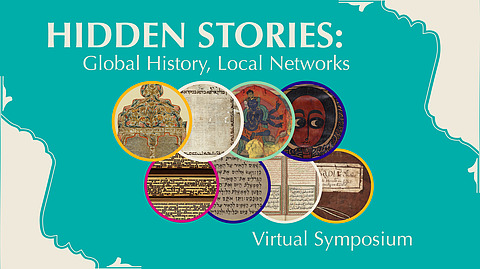
Join the Aga Khan Museum for a virtual symposium celebrating the exhibition Hidden Stories: Books Along the Silk Roads, featuring books, scrolls, manuscript paintings, textiles, and objects spanning a 1,000-year history. The exhibition and symposium are global — examining a vast network of trade routes spanning Asia, Europe, and Africa — and local, bringing together historical artifacts from collections across Ontario, Canada.
View the Symposium Program here. Register in advance here.
The Hidden Stories symposium is organized by co-curators Filiz Çakır Phillip (Aga Khan Museum) and Suzanne Conklin Akbari (Institute for Advanced Study) and supported in partnership with the Book and the Silk Roads Project, the Institute of Islamic Studies, and The Robert H.N. Ho Family Foundation Centre for Buddhist Studies at the University of Toronto. View the digital exhibit here.
April 1, 12-1:20 pm, Seminar Series: “Race, Race-thinking and Identity in the Middle Ages and Medieval Studies: Archaeology and Race” – Race and Medieval Archaeology, Bonnie Effros, University of British Columbia and Susanne Hakenbeck, University of Cambridge. Register HERE to receive the zoom link.
Seminar Series: We aim to move beyond simplistic either-or binaries – race/not race, race/religion, race/ethnicity, US/Europe – to develop nuanced paradigms for racialization and its interaction, overlap, and interdependence with other forms of social categorization, and to consider how Critical Race Theory might inspire and inform historical study. Organized by: Medievalists of Color; the Program in Medieval Studies, Princeton University; the Division for Identity Studies, Institute for Medieval Research of the Austrian Academy of Sciences, Vienna; and the School of Historical Studies at the Institute for Advanced Study, Princeton. Funded by the Humanities Council at Princeton University.
13-15 May 2022, 10am-4pm ET: Munsee Delaware Gathering
MAAWEHLEEWAK - EHAHKIIHEET NIIPAAHUM (Planting Moon)
Munsee Language, History, and Culture weekend (hybrid event)
This Munsee Language, History, and Culture gathering features presentations at the Munsee-Delaware Community Centre. The event will also be hosted virtually and includes presentations on “planting” vocabulary in the Munsee language, starting your own beans and corn, Lunaape objects in museum collections, Munsee Delaware history, and updates on current research projects.
To join the virtual event, contact organizer Ian McCallum at: imccallum72 [at] hotmail.com.
2020-21
September 29, 12:30-1:30 pm, The Index of Medieval Art, Princeton University, Welcome Back and Info Session. An opportunity to meet and greet the staff and learn more about the Index database, and see how it can support your research.
October 19, 12:00 noon: Medieval Studies, Princeton University, Racialization in Late Antique Italy and Italian Historiography, Nicole Lopez-Jantzen (City University of New York). First seminar of the lecture series on “Race, Race-Thinking, and Identity in the Middle Ages and Medieval Studies”.
November 17, 12:00-1:30 pm: IAS Ethiopian Studies Series*, The Beta Israel and Ethiopian Christian Views of Jews and Judaism. Panelists: Steven Kaplan (The Hebrew University of Jerusalem), Sophia Dege-Müller (Ruhr-Universität Bochum), Marcia Kupfer (Washington, DC), and Aaron Butts (Catholic University of America / Institute for Advanced Study). Moderator: Samantha L. Kelly (Rutgers University / Institute for Advanced Study). * Conveners for this series are: Suzanne Akbari (IAS), Aaron Butts (CUA / IAS), Samantha L. Kelly (Rutgers U / IAS), Sabine Schmidtke (IAS). The video recordings for this event can be seen here.
December 4, 12:00-1:30 pm: IAS Digital Scholarship Conversations - The Book and the Silk Roads: Corralling Data in the Digital Workspace. Speakers: Suzanne Akbari, Professor of Medieval Studies, IAS • Rachel Di Cresce, Project Librarian, The Book and the Silk Roads • Jessica Lockhart, Director of Research, The Book and the Silk Roads • J. D. Sargan, Leverhulme Research Fellow, Old Books, New Science Lab
“The Book and the Silk Roads” project seeks to build and support a growing international network of scholars, curators, conservators, and scientists exploring significant developments in writing technologies within a range of contexts, focusing particularly on examples of convergent evolution and interchange across the pre-modern world, from East Asia to Mesoamerica. In our presentation we will address how we have handled the technical challenge underlying this research agenda: how to bring different sets of heterogeneous data together in a user-friendly way, while making use of standardized data sharing frameworks to ensure it is open and reusable both across and outside of our tools. The video recording for this event can be seen here.
February 19 and March 19, 2021: IAS Ethiopian Studies Series
The Turn to the Medieval in Ethiopian Studies – The Turn to Ethiopia in Medieval Studies I and II
We are eager to think together about the rich and often challenging complexities that have arisen as a result of the intersection of Medieval Studies and Ethiopian Studies over the past several years. These fields developed along very different lines, but have begun to mutually enrich – and interrogate – one another. In terms of regional networks, the two fields overlap in their concern with political, commercial, and cultural connections in the eastern Mediterranean: while Ethiopia represents for Medieval Studies an outgrowth of Mediterranean Studies, extending investigation for such exchanges down the Red Sea, Europe similarly represents for Ethiopian Studies a secondary ring of this zone of contact. Each offers the other a rich comparative (and sometimes connected) context for the study of Christian culture, including monasticism, hagiography, manuscript studies, and art and architecture, and both have investigated interconfessional relations in ways that might be mutually illuminating. Finally, together they contribute to an exploration of what ‘medieval Africa’ might entail, and allow us to explore the potentialities of more integrated, even global approaches to the premodern world. Yet the enrichment that this intersection of fields provides may also be problematic, as the distinctive chronologies, nomenclatures, and scholarly traditions of Medieval Studies and Ethiopian Studies meet. As research on premodern Ethiopia has greatly expanded in recent decades, and as Medieval Studies manifests increasing interest in Ethiopia, these paired webinars seek to explore what is gained and what is lost by more intensive conversation between them.
February 19, 2021, 12:00-1:30 pm EST: The Turn to the Medieval in Ethiopian Studies – The Turn to Ethiopia in Medieval Studies I. The video recordings for this event can be seen here.
Panelists:
Andrea Achi (Department of Medieval Art and The Cloisters at the Metropolitan Museum)
Marie-Laure Derat (Centre National de la Recherche Scientifique)
Kristen Windmuller-Luna (Cleveland Museum of Art)
Felege-Selam Yirga (The University of Tennessee Knoxville)
March 19, 2021, 12:00-1:30 pm EST: The Turn to the Medieval in Ethiopian Studies – The Turn to Ethiopia in Medieval Studies II. The video recordings for this event can be seen here.
Panelists:
Alessandro Bausi (Universität Hamburg)
Verena B. Krebs (Ruhr-Universität Bochum)
Eyob Derillo (The British Library)
Samantha L. Kelly (Rutgers and IAS)
April 30, 2021, 12:00 pm EST: Medieval Studies, Princeton University, Race, Racecraft and Necropolitics in Greek Epic, Jackie Murray (University of Kentucky) and moderated by Suzanne Conklin Akbari (School of Historical Studies, IAS). This seminar is part of the virtual series entitled “Sedimented History: The Ancient Precursors to Race, Race-Thinking, and Identity” and organized by Medievalists of Color; the Program in Medieval Studies, Princeton University; the Division for Identity Studies, Institute for Medieval Research of the Austrian Academy of Sciences, Vienna; and the School of Historical Studies at the Institute for Advanced Study, Princeton. Funded by the Humanities Council at Princeton University.
May 20, 2021, 12:00-1:30 pm EST: Beyond Ethiopia: The Islamic Intellectual History of the Horn of Africa.
Much progress has been made over the past decade in the study of Muslim Ethiopia, and with the ongoing work of digitizing, cataloguing and analyzing the local Muslim manuscript tradition, scholars are in a better position than ever before to assess the intellectual strands prevalent among the Muslims of Ethiopia at any given time in history. Our objective for the webinar is threefold: First, we would like to get a clearer picture of what still needs to be done in terms of salvaging and providing access to the Muslim manuscript tradition of Ethiopia (or Ethiopian provenance) — what are the challenges and what would be the promises? Secondly, we hope to engage in a discussion that will assess the intellectual traditions prevalent among Ethiopian Muslims, e.g. legal traditions, doctrinal stances, and other prevalent expressions of Islamic identity, throughout history. Thirdly, we intend to engage in a discussion that will situate the intellectual history of Muslim Ethiopia beyond its core region and discuss how it intersected over the centuries with other prevalent strands and developments, such as the Horn of Africa (including Eritrea, Djibouti, Somalia), Southern Arabia (Yemen), as well as East Africa or even the Indian Ocean network. Lastly, we are eager to think together about where the study of Muslim Ethiopia stands within the larger picture of Ethiopian Studies.
Panelists:
Maria Bulakh (Institute for Oriental and Classical Studies, National Research University Higher School of Economics, Moscow)
Alessandro Gori (University of Copenhagen)
Hassen Muhammad Kawo (University of Cape Town, South Africa)
Paul M. Love (Al Akhawayn University)
Anne Regourd (Centre National de la Recherche Scientifique, Paris)
June 2-3, 2021, 10:00 am -3:00 pm EST: Two-day workshop, Textiles in Manuscripts Workshop - The Book and the Silk Roads project. The aim of this virtual workshop is to examine the vast use of textiles in manuscripts, both practical and ornamental: their uses within bindings, as wrappers, enclosures, and covering, as cloth used to protect images, and as symbolic or talismanic artefacts. Workshop sessions focus on the use of textiles in Armenian, Chinese, Ethiopian, Islamic, Kashmiri, and Syriac manuscripts from the middle ages through the early modern period. Each session explores content presented in pre-recorded videos that participants must watch in advance of the workshop. For more information and to access the pre-recorded videos, visit the Textiles in Manuscripts Workshop website.
News:
Q&A with Cord Whitaker: On the value of the Middle Ages to the work of racial justice
Member Columba Stewart acts to save manuscripts from ISIS
